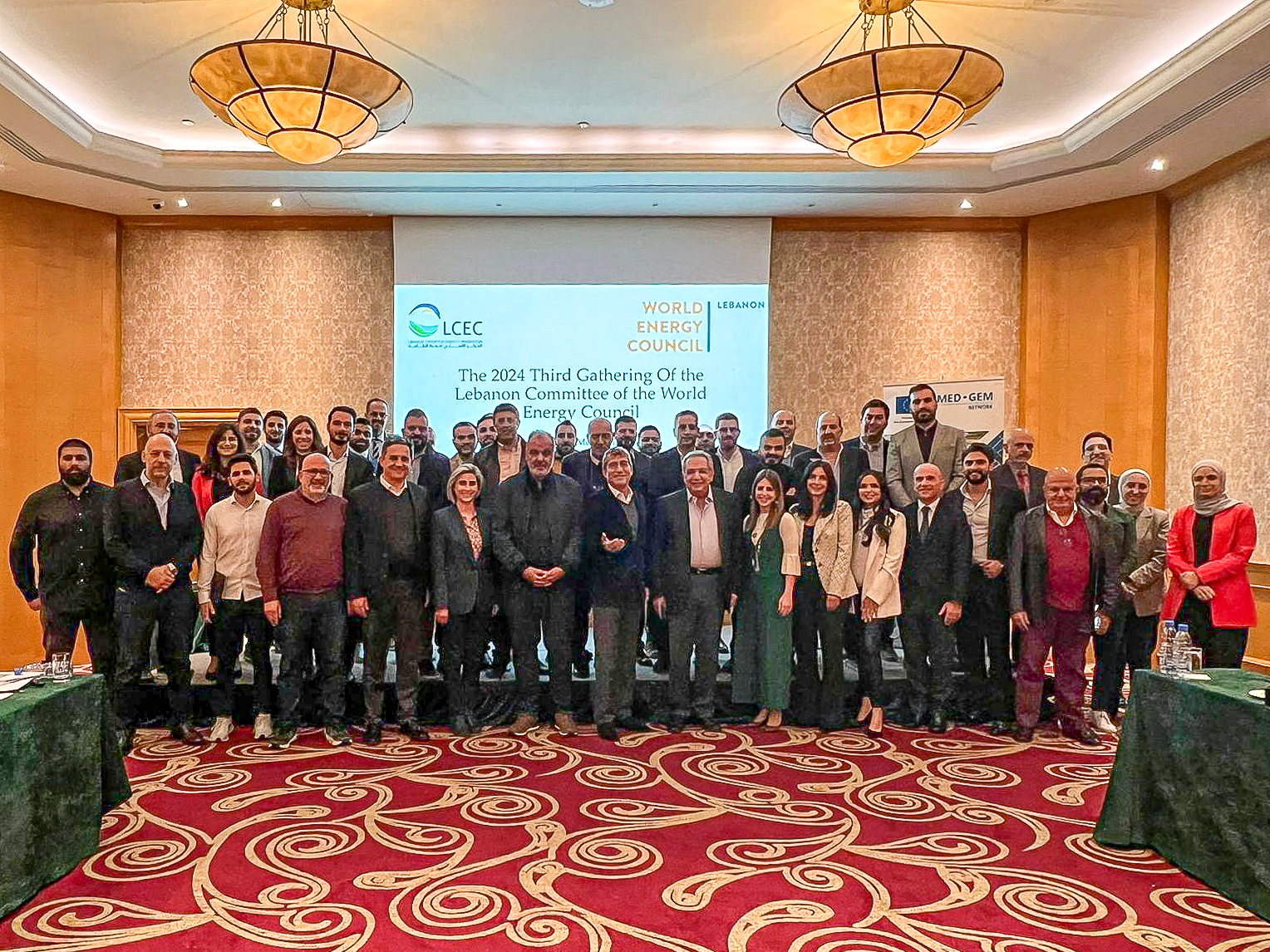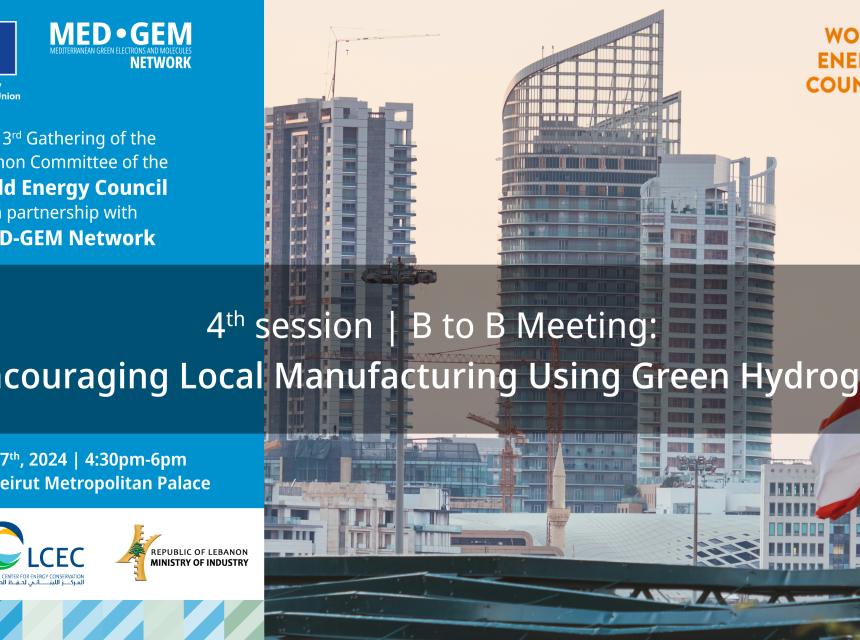Lebanon's Leap Toward a Green Future: The Role of Green Hydrogen in Local Manufacturing

In a remarkable stride towards a sustainable and resilient energy landscape, Lebanon has showcased its commitment to green hydrogen (GH2) as a cornerstone of its green revolution. During the pivotal "Encouraging Local Manufacturing Using Green Hydrogen" session at the 2024 Third Gathering of the Lebanon Committee of the World Energy Council (WEC), key figures including H.E. Dr. Walid Fayad, Minister of Energy and Water, H.E. Mr. George Boujikian, Minister of Industry, and other esteemed stakeholders and influential figures from the industrial sector and energy initiatives, convened to deliberate on Lebanon's green energy trajectory, emphasising the integration of GH2 into the nation's energy strategy.
The fourth and last session spotlighted the collaborative efforts between the Lebanese government, local industries, and the international community, particularly through the MED-GEM Network funded by the European Union, convened to deliberate on Lebanon's green energy trajectory, emphasising the integration of GH2 into the nation's energy strategy. Spearheaded discussions by Dr. Joseph Al Assad, Dean of the School of Engineering at USEK University, shed light on the nuances of hydrogen technology and the pivotal role of MED-GEM in bolstering green energy initiatives. The collaboration aims to devise a comprehensive GH2 roadmap, covering production, storage, transportation, and legal frameworks, underscored by Lebanon's advantageous geographical positioning and solar resources.
The convergence of governmental support, industry conviction, and international collaboration was palpable, laying a robust foundation for Lebanon's aspiration to be a regional beacon in GH2 innovation and manufacturing. The emphasis on local value creation within the GH2 value chain, coupled with policy reforms such as the ratified Distributed Renewable Energy Law, signals a transformative period for Lebanon's industrial and energy sectors. Salim Zeenni, President of the Association of Lebanese Industrialists, projected a booming H2 sector and highlighted GH2's role in sustaining industrial competitiveness.
Lebanon's GH2 initiative is not just a leap towards energy independence but also a testament to its dedication to economic revitalisation and environmental stewardship. The session underscored the importance of clustering factories in industrial zones for efficient GH2 use and the readiness of implementing the first GH2 project in the industrial sector, demonstrating a strategic move towards energy efficiency and sustainability. As Lebanon embarks on this green journey, the integration of GH2 into local manufacturing emerges as a beacon of hope, representing a significant step towards not just meeting its energy needs but also contributing to the global fight against climate change.
This influential gathering brought together energy and legal experts as well as industry leaders with a significant presence from the Association of Lebanese Industrialists, including its president, Salim Zeenni. Further support was evident from the Lebanese Center for Energy Conservation (LCEC) with Pierre Khoury, its Director General, and the MED-GEM National Focal Point (NFP), alongside team members Dr. Sorina Mortada, Hadi Abou Moussa, Farah Mawla, and Ghada Daouk. The MED-GEM Network's contribution was highlighted by Toufic Rizkallah, Technical Manager and Network Coordinator, and Dr. Joseph Al Assad, Lebanon Senior Short-term Expert (SSTE).
The merging of these diverse yet interconnected stakeholders underscores a unified vision for Lebanon's energy strategy, emphasising the pivotal role of GH2 in not only meeting domestic energy needs but also positioning Lebanon among the players in the global green hydrogen economy. Through a comprehensive approach encompassing production, storage, transportation, and legal frameworks, this collaborative effort aims to leverage Lebanon's strategic advantages and abundant solar resources, marking a significant step towards energy independence, economic revitalisation, and environmental stewardship.
As Lebanon embarks on this transformative journey, the collective expertise and commitment of its government, industry leaders, and international partners illuminate a path towards a prosperous and sustainable future, affirming Lebanon's role in the global race towards decarbonisation and green energy innovation. With strategic investments and concerted efforts, Lebanon is poised to carve out a niche in the burgeoning green hydrogen economy. The nation's commitment to GH2 promises not only economic prosperity but also a prosperous tomorrow for generations to come, reaffirming its role in the global race towards decarbonisation.
In conclusion, the meeting's outcomes and the fervent support from various sectors signal a bright horizon for Lebanon's green hydrogen initiative. It's a narrative of transformation, collaboration, and innovation that resonates with the global imperative for a clean energy transition.

